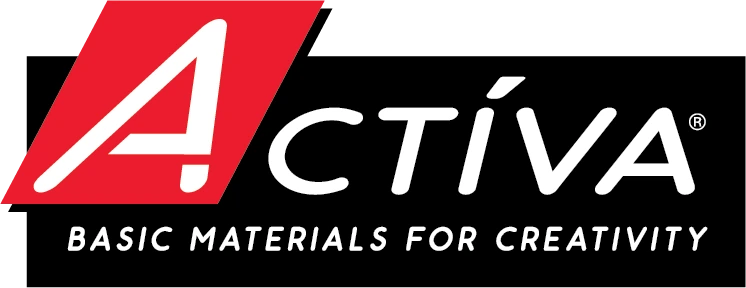As part of the ACTÍVA Products Art Teacher Mystery Box contest, art teacher Tracy Evans submitted this Biome Box project. Visit Tracy at her blog, The Evans Art House, and on Instagram.

SUPPLIES NEEDED
- Poster board
- ACTÍVA Products Rigid Wrap
- Masking Tape
- Scissors, ruler, pencil
- Bowl of water
- ACTÍVA Products Activ Clay- White
- Clay tools
- Acrylic or tempera paint
- ACTÍVA Products Scenic Sand
- Clear Elmer’s glue and E600 to glue clay pieces
- Optional- any extra embellishments to add pizazz to your piece!
BIG IDEAS FOR THE LESSON
Biomes are a community of plants and animals that have common characteristics for the environment they exist in, and can be found over a range of continents. “Biome” is a broader term than “habitat”, and any biome can comprise a variety of habitats.
Students can start with the animal, plant, or place for their biome. Think of something or somewhere that interests you. Research the information you need to create a biome in your box then sketch out ideas in a sketch book or journal, write a list of objects, collect photos from magazines or the internet. All of this will come in handy to use as a reference.
INSTRUCTIONS FOR MAKING A BIOME BOX
1. On a piece of poster board, measure a 5 1/2” x 5 1/2” square. Cut out and set aside. Then cut a long strip of poster board 2” thick and 22” long. This will be long enough to create the sides all around the box.

2. Tape the sides and back together using masking tape.
3. Cut the Rigid Wrap into smaller strips. Wet the strips according to the package and cover all of the poster board. Make sure to overlap the strips so there are no seams. Smooth out the bumps with your wet fingers. Set aside to dry.


4. While the box is drying, you can roll out the Activ Clay and create the plants, animals, objects for your biome. Remember, a landscape is more interesting if you have something in the foreground, middle ground, and background. Creating depth with your figures and vegetation really adds interest to your project! Don’t forget to think about legs for your box. Be creative on what the legs could be shaped like. Ours are simple rectangles but painted as cactus! You can also create clay objects to add to the top of your biome box.

5. Once your box is dry, draw your scene onto your box and use acrylic or tempera paint to paint the back, the sides inside and out, and the back.

6. While the box is drying you can paint your animals, plants and objects for your biome. Let dry before gluing in the box.

7. Using clear glue, draw lines or a design to add the sand. Sprinkle in one color or mix colors together to get an original color! You can leave it puffy or use your finger and rub the glue-sand mixture over the ground and sides. This adds a realistic detail to your biome!


8. Once glue-sand mixture is dry, you can start attaching the painted clay pieces. E600 was very successful in attaching this light-weight clay, and dries clear and fairly quick.

9. Add any embellishments on the top, if desired.




 />
/>
 />
/>